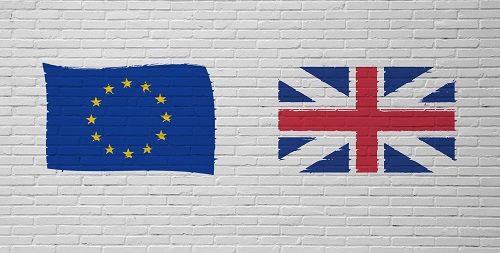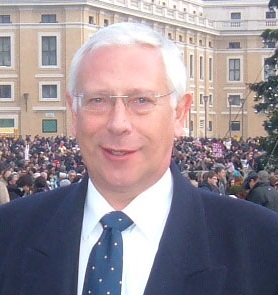Issue Briefs

Theresa May defeated on Brexit – again
Graham Bardgett
March 13, 2019
Blame it on the air conditioning of the aircraft she flew in to and from Strasbourg – but her voice did not carry the vote in the most crucial of decisions Westminster MPs would ever take. She struggled briefly in the midnight press conference in Strasbourg, her glass of water was there but she was determined to carry on. Even the EU Commission President Jean-Claude Juncker was about to reach over to Mrs May to get the glass of water – but she still carried on.
Brilliant performance
It was a brilliant performance in front of the TV and press cameras but despite her best efforts the next day she could not win over all the MPs in the House. Prime Minister Theresa May looked stunning as she answered questions from the press. But the next day was to be different as she struggled with her voice. Even with that her performance was still eloquent, not even daunted by her shuttle diplomacy over the past few days, weeks, and months.
Rejected again
And yet, Prime Minister Theresa May’s EU withdrawal deal was rejected by MPs for a second time, throwing her Brexit strategy into further confusion. MPs voted down her EU Brexit deal by 391 to 242 – a smaller defeat than when they rejected it in January. Her Attorney General Geoffrey Cox, in his theatrical baritone voice worthy of a judge or an advocate, gave an eloquent performance, winning the praise of all MPs. But despite legally binding changes in the documentation, it was still not enough to win the day.
The chairman of the 1922 Committee Sir Graham Brady looked on from the back benches as one by one all the MPs had their say. But it was still not enough. The PM said MPs will now get a vote on whether the UK should leave without a deal on 29 March and, if that fails, on whether Brexit should be delayed.
Free vote on no-deal Brexit
Once the vote was known at 7.20pm, Mrs May said Tory MPs will now get a free vote on a no-deal Brexit. That means they can vote with their conscience rather than following the orders of party managers. If the Commons declines to approve a no-deal Brexit in a vote on Wednesday 13 March, a vote on extending Article 50, the legal mechanism taking the UK out of the EU on 29 March, will take place on Thursday. She told MPs: “This is an issue of grave importance for the future of our country. “Just like the referendum there are strongly held and equally legitimate views on both sides.” “For that reason, I can confirm that this will be a free vote on this side of the House.” She said that the choices facing the UK were “unenviable”, but because of the rejection of her deal, “they are choices that must be faced”. Labour leader Jeremy Corbyn said the Prime Minister should now call a general election. “The government has been defeated again by an enormous majority and it must accept its deal is clearly dead and does not have the support of this House,” he told MPs. He said a no-deal Brexit now had to be “taken off the table” – and Labour would continue to push its alternative Brexit proposals. He did not mention the party’s commitment to back another referendum.
EU can do no more
The EU’s Chief Brexit negotiator Michel Barnier said in a tweet: “The EU has done everything it can to help get the Withdrawal Agreement over the line. The impasse can only be solved in the UK. Our ‘no-deal’ preparations are now more important than ever before.” A spokesman for European Council president Donald Tusk echoed that message, saying it was “difficult to see what more we can do”. “With only 17 days left to 29 March, today’s vote has significantly increased the likelihood of a no-deal Brexit,” added the spokesman.
The EU would consider an extension to Brexit if the UK asked for one, he added, but the 27 other EU member states would expect “a credible justification” for it. Some 75 Conservative MPs voted against the PM’s deal, compared with 118 who voted against it in January. The Democratic Unionist Party’s 10 MPs also voted against the deal, as did the Labour Party, SNP and other opposition parties. Three Labour MPs – Kevin Barron, Caroline Flint and John Mann – voted for the prime minister’s deal.
New elections?
A Labour Party spokeswoman said: “Allowing a free vote on no deal shows Theresa May has given up any pretense of leading the country. “Once again, she’s putting her party’s interests ahead of the public interest.” Mrs May had earlier warned MPs that if they did not back her “improved deal” they risked “no Brexit at all”. But she failed to convince enough of them that concessions she had agreed at the last minute with the EU were the “legally-binding” changes they had demanded when they rejected the deal by 230 votes in January.
Northern Ireland’s Democratic Unionist Party, which keeps May’s government in power, voted against the deal, along with Brexiteer Conservative backbenchers.
 |
Graham Bardgett is a Global Policy Institute Fellow. He has reported for the Los Angeles Post Examiner and Baltimore Post Examiner and is a former BBC Radio News sub-editor in London and Veteran reporter of the Northern Ireland Troubles and Peace Process. He had five years on the news desk of BBC Northern Ireland, nine years as a security reporter on the Belfast Telegraph, four years as Ireland staff reporter for the Daily Mail, and was a correspondent for the Financial Times, Daily Mirror, Sunday Express, and Irish Daily Mail. During his career he has also reported from Berlin, Luxembourg, and Rome, and carried out public affairs critical incident consultancy work in Kazakhstan and in London. He had four years with PwC international accountants and consultants; and was previously a UK Government Higher Executive Press Officer. |
The views and opinions expressed in this issue brief are those of the author.